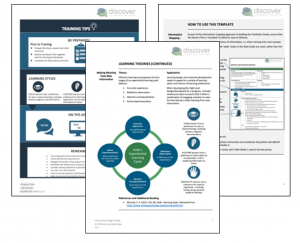The Evaluate phase reviews the effectiveness of the learning program and materials. It asks: ‘did we hit the mark?’ and consists of two parts: formative and summative evaluation.
Formative evaluation is present in each stage of the ADDIE process. It helps to identify any barriers or unexpected opportunities that may emerge throughout the process. The feedback gathered during formative evaluation is used to fine-tune the design, development and implementation of the program, gather reaction and identify what is not working.
Summative evaluation is the process of collecting data following implementation of the project in order to determine its effectiveness. It may measure knowledge transfer, learner outcomes, cost factors, and changes in learner behaviour.


